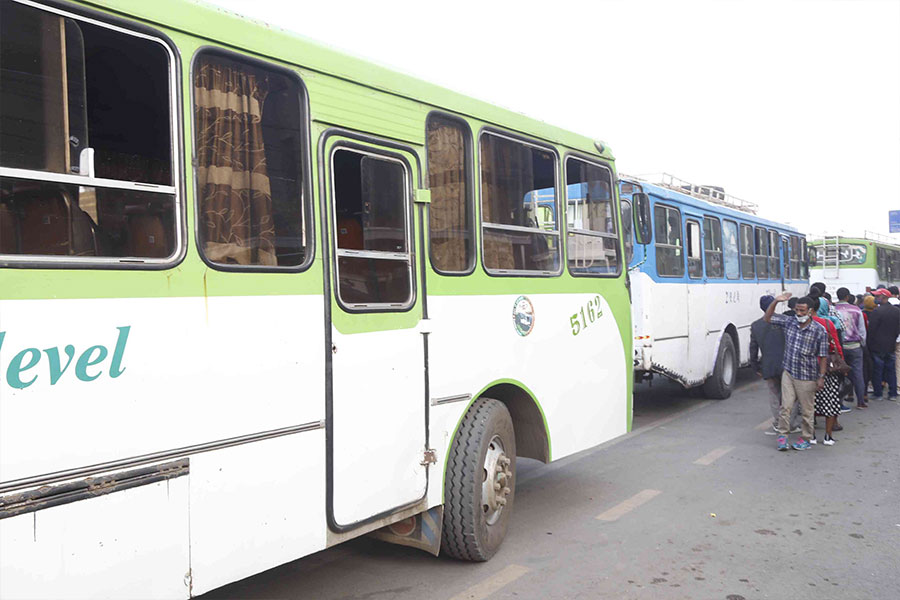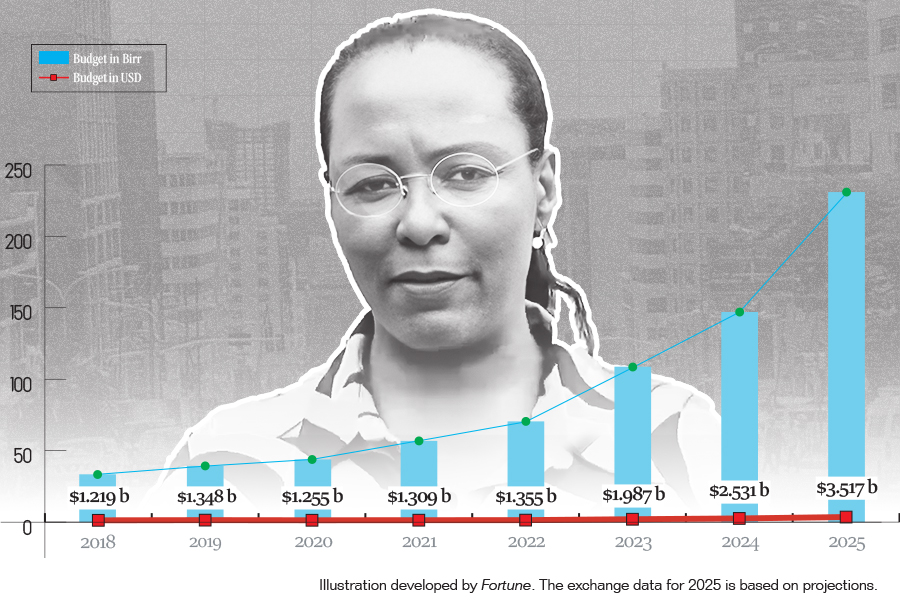
Fortune News | Sep 29,2024
Federal authorities have granted infant formula importers exemptions from value-added tax (VAT) to offset the rising prices for baby formula on the consumer. Officials hope the exemption improves affordability for families accustomed to bottle-feeding practices.
However, health officials and experts worry such a policy move reveres national efforts to encourage breastfeeding. The use of formula milk is growing in Ethiopia, with close to 40pc mothers opting for the breast milk substitute in urban areas.
The tax exemption is part of a policy the administration of Prime Minister Abiy Ahmed (PhD) has been following, responding to soaring food prices through subsidies and tax exemptions. In recent months, similar concessions were granted to importers of essential food items such as edible oil, wheat, sugar, and rice. The year-on-year food inflation index averaged 32.4pc last year. Headline inflation registered at 34pc last month, marking 11 consecutive months above the 30pc mark.
The exemption from VAT began to be enforced last week by the Customs Commission after orders from senior officials of the Ministry of Finance. Legesse Almaw, director of tariff classification, instructed the heads of six branch offices.
Importers were paying VAT and customs duties, calculated after adding up the value of the imported goods, freight costs, insurance fees, and duties. The value added tax is also levied on most goods and services in the economy, barring a few exempted. At 15pc, VAT on goods and services transactions is the principal source of revenues for the federal government, accounting for 25pc of the 439 billion Br expected in domestic revenues for the new fiscal year. The tax bureau collected 43.2 million Br in VAT from baby formula importers two years ago.
The exemption is welcome news to Meron Teshale, 32, who was shopping last week for baby formula at Belonias Supermarket in the Arat Kilo area. She had come to buy S26, a known brand (S26), for her seven-month-old son. She found prices had nearly doubled to 700 Br a litre since she last bought the product at the same shop four months ago.
“This is way beyond my budget,” Meron told Fortune.
Meron left the supermarket with Cerifam – baby food comprising wheat and soya. She bought a container for 80 Br.
The tax exemption applies to imports and goods already in the process of shipment. Importers of baby foods and infant formula are compelled to hold permits from the Food & Drug Authority. Close to two dozen registered companies and seven agents import baby foods and infant formula. They brought in close to 2,500tns of baby formula valued at 6.4 million dollars last year. Over the first 11 months of the concluded fiscal year, the import volume had dropped by 78pc.
Solomon Negusse is the general manager of Medtech Ethiopia, an importer of baby foods incorporated 25 years ago with brothers Muhammed and Ahmed Nuri as major shareholders. The company operates with a capital of 182 million Br. He sees the exemption as the right move to make the products his company imports affordable. However, he observes the primary factor behind the price rise is a shortage in the local market.
“It’s due to the foreign currency shortage facing importers,” he told Fortune.
Medtech used to import up to 20 containers of baby foods each year. This has dropped to close to nothing over the past couple of years.
“We’re not getting even a small amount of the foreign currency we require,” he said.
Importers argue the government should focus on addressing the weakest link of the problem, improving access to foreign currency and providing resource support to actors in the economy.
The exemption for infant formula goes against the advice from regulatory bodies in the health sector.
“We don’t recommend infant formula,” said Meseret Zelalem, director of maternal, child health, and nutrition at the Ministry of Health.
Health experts and officials encourage breastfeeding for the first six months of birth. It is an important factor that determines children’s future well-being, according to Meseret.
Mulu Abraham (MD), a paediatrician who has worked in the medical sector for the last 30 years, says promoting the practice of bottle feeding by granting tax breaks is not a wise move considering supplemental formulas can increase infant mortality by 25 times.
Since 2016, the Ministry and other regulatory bodies, including the Food & Drugs Authority, have backed legislation to encourage breastfeeding, restricting the promotion of formula feeding practices. The Authority has banned commercial advertisements for infant formula.
PUBLISHED ON
Jul 17,2022 [ VOL
23 , NO
1159]

Fortune News | Sep 29,2024

Sunday with Eden | May 24,2025

Year In Review | Jan 02,2024

Fortune News | Jul 17,2022

Radar | Oct 12,2024

Fortune News | Jul 21,2024

Commentaries | Jun 14,2025

Fortune News | Apr 28,2024

Radar | Aug 26,2023

Fortune News | Apr 28,2024

Dec 22 , 2024 . By TIZITA SHEWAFERAW
Charged with transforming colossal state-owned enterprises into modern and competitiv...

Aug 18 , 2024 . By AKSAH ITALO
Although predictable Yonas Zerihun's job in the ride-hailing service is not immune to...

Jul 28 , 2024 . By TIZITA SHEWAFERAW
Unhabitual, perhaps too many, Samuel Gebreyohannes, 38, used to occasionally enjoy a couple of beers at breakfast. However, he recently swit...

Jul 13 , 2024 . By AKSAH ITALO
Investors who rely on tractors, trucks, and field vehicles for commuting, transporting commodities, and f...

Jul 5 , 2025
Six years ago, Ethiopia was the darling of international liberal commentators. A year...

Jun 28 , 2025
Meseret Damtie, the assertive auditor general, has never been shy about naming names...

Jun 21 , 2025
A well-worn adage says, “Budget is not destiny, but it is direction.” Examining t...

Jun 14 , 2025
Yet again, the Horn of Africa is bracing for trouble. A region already frayed by wars...